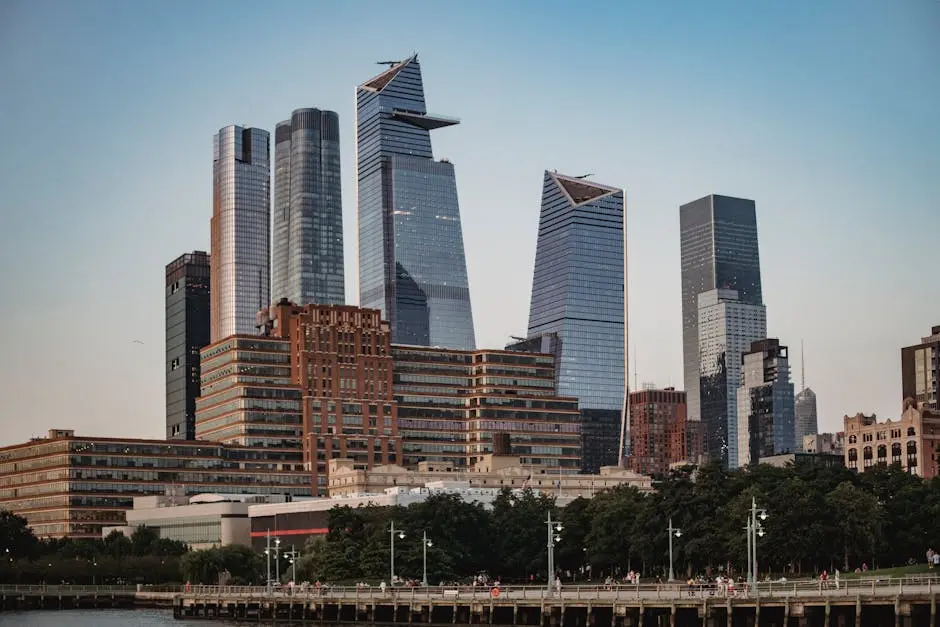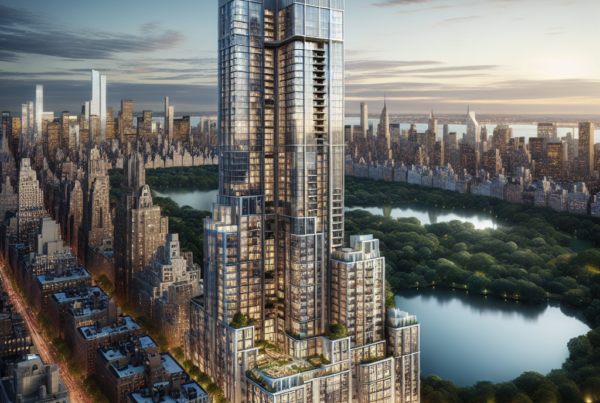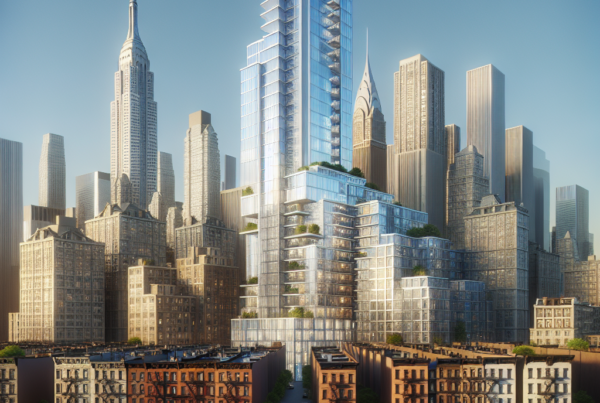Investing in real estate, particularly new construction apartments in NYC, is a significant financial decision. This FAQ blog will help you navigate through the most common questions, providing insights and information to determine if this investment is right for you.

What Are the Benefits of Investing in New Construction Apartments?
New construction apartments often come with the latest amenities, modern designs, and require less maintenance. They can also be more attractive to renters.
One of the most significant benefits of investing in new construction apartments is the peace of mind that comes with owning a property that meets current building codes. These properties are less likely to have underlying issues that older buildings might conceal. For the first few years, maintenance costs are typically lower because everything is brand new, from the plumbing to the electrical systems.
Additionally, new construction apartments are built with modern tastes and lifestyles in mind. They often include open floor plans, high ceilings, and large windows to usher in natural light. Amenities such as fitness centers, rooftop lounges, and pet-friendly features make these buildings highly desirable among younger demographics and professionals.
For property investors, the appeal of new construction apartments extends to their marketability. Because they are designed with contemporary preferences, they attract a wide range of potential tenants willing to pay a premium for the conveniences and aesthetic appeal of a modern building. This higher rental income can translate into a better return on investment over time.
Green building technology is another consideration. Newer buildings are often constructed with energy-efficient systems and sustainable materials. This could mean savings on utilities for tenants and owners alike, along with the satisfaction of owning a property that’s environmentally conscious.
What Are the Drawbacks of New Construction Apartments?
While they might have a higher purchase price, new construction apartments can sometimes come with uncertainties such as construction delays, potential for initial defects, and higher market volatility.
One of the main drawbacks is the price tag. New construction apartments usually come at a premium, reflecting their newness and the amenities they offer. This higher upfront cost can make them less accessible for some investors. Furthermore, financing these properties might require a higher down payment and more stringent lending criteria.
Potential buyers should also consider the possibility of construction delays. Although developers provide estimated completion dates, unforeseen issues such as weather conditions, supply chain disruptions, or permit delays can push back the move-in date. This can be particularly frustrating if you have plans contingent on the completion date.
Initial defects are another concern. New buildings are not immune to flaws, and sometimes these issues reveal themselves only after occupancy. Whether it’s a leaky roof, faulty wiring, or subpar construction materials, fixing these problems can be costly and time-consuming.
Market volatility is yet another factor to ponder. The real estate market as a whole is subject to shifts in economic conditions, but luxury new builds can be more susceptible to these fluctuations. If the market takes a downturn, the higher price you paid might not be as easily recoverable.
How Does the Location Affect the Investment?
The neighborhood, proximity to transportation, schools, and amenities significantly influence the desirability and value appreciation of new construction apartments in NYC.
Location is everything when it comes to real estate, and this adage holds especially true in NYC. The city’s diverse neighborhoods each have their own unique appeal and potential. A property located in a bustling, well-connected district with access to numerous transit options and amenities like parks, restaurants, and shops can command higher rental yields and attract renters year-round.
Schools also play a crucial role. Proximity to reputable schools can significantly boost a property’s value. Families are often willing to pay a premium to be in a good school district, making these properties more desirable not just for renting, but for resale as well.
Local development plans and infrastructure projects should not be overlooked. A neighborhood that’s slated for new commercial spaces, improved public transport, or public amenities can see a substantial increase in property values. Keeping an eye on city planning board meetings and local government reports can provide valuable insights into future growth areas.
Safety is another critical consideration. Lower crime rates contribute to making an area desirable for long-term tenants. As an investor, it’s worth keeping an eye on local crime statistics and considering how the neighborhood’s safety may impact your ability to attract and keep tenants.
What Is the Current Market Trend for New Construction in NYC?
Understanding the market trends, including demand, pricing, and future development plans, helps in making a more informed investment decision.
The current market trend for new construction in NYC is shaped by several factors, including the city’s overall economic health, interest rates, and employment levels. Currently, there has been a steady demand for luxury residences, especially in areas undergoing rapid gentrification. However, market researchers suggest that there’s also a growing demand for affordable housing, which developers are beginning to address.
Prices for new construction apartments have been on an upward trend, reflecting the demand for modern living spaces and advanced amenities. Recent reports indicate a slight cooling in the housing market, but new construction remains robust due to the continuous allure of urban living and convenience.
Future development plans also suggest a sustained interest in constructing new residential buildings. Developers are not just focusing on Manhattan; boroughs like Brooklyn and Queens are seeing an influx of new projects aimed at attracting both renters and buyers who seek space and affordability.
Investors should also look at rental yields and occupancy rates. New construction buildings often command higher rents, but this needs to be balanced against the cost of acquisition and ongoing maintenance fees.
What Are the Financing Options Available?
Exploring various financing options such as mortgages, equity loans, or investments from partnerships can help manage the financial burden of purchasing new construction apartments.
Traditional mortgages are a popular option, but they often require a significant down payment, especially for new construction. Some lenders offer specific programs for new builds that might include interest-only periods or adjustable-rate mortgages, which can be beneficial during the construction phase when rental income isn’t yet available.
Equity loans or home equity lines of credit (HELOCs) can provide a flexible source of capital. These loans are based on the equity of another property you own and can be used to finance the purchase or renovation of new construction apartments.
Partnerships and private investments are also worth considering. Pooling resources with other investors can reduce individual financial burden and risk. Real estate investment groups or crowdfunding platforms offer modern ways to get involved without bearing the entire cost alone.
Government programs and incentives can further ease the financial load. Investigating local and federal programs designed to stimulate housing development can reveal grants, low-interest loans, or tax incentives.
How Do You Calculate Potential Returns on Investment?
It’s essential to calculate potential returns by considering rental income, appreciation rates, and other financial factors. Tools and professional advice can assist in these calculations.
To estimate the potential returns on your investment, start with expected rental income. This will be influenced by various factors, including the apartment’s location, the local market’s demand, and the amenities offered. Use comparable properties in the area to gauge realistic rental rates.
Appreciation rates are equally important. Historical data on how property values have increased in the neighborhood can provide a reasonable forecast. However, it’s essential to consider that past performance isn’t always indicative of future results.
Operating costs should be factored in as well. These include property management fees, maintenance, property taxes, and insurance. Subtract these costs from your rental income to find your net operating income (NOI), a critical metric in real estate investment.
Leveraging tools like ROI calculators or consulting with real estate professionals can provide a clearer picture. These resources can help you input various scenarios and assumptions to estimate potential profitability more accurately.
What Factors Should You Consider Before Making the Purchase?
Before committing, consider factors such as the developer’s reputation, construction quality, future marketability, and your long-term investment strategy.
Researching the developer’s reputation is crucial. Look at their previous projects, reviews from other buyers, and any potential red flags. A developer with a solid track record is more likely to meet deadlines and deliver a high-quality property.
Quality of construction is another vital factor. Before making a purchase, try to tour other buildings the developer has completed. Pay attention to the materials used, the finish quality, and any signs of wear and tear. This firsthand experience can provide insight into what you can expect in your new investment.
The future marketability of the apartment should also influence your decision. Think about the long-term demand for the type of apartment and its location. Are there ongoing developments or improvements in the area? Is the neighborhood becoming increasingly popular?
Finally, align the investment with your long-term goals. Are you looking for quick resale profits, or do you aim to generate steady rental income? Each strategy involves different risks and rewards. Clearly defining your investment objectives can guide you in selecting the right property.
Final Thoughts: Is Investing in New Construction Apartments in NYC Right for You?
Making an investment in new construction apartments in NYC can be rewarding, but it requires thorough research and understanding of the market. Consider all the factors, understand the financial implications, and align them with your investment goals to make an informed decision.






